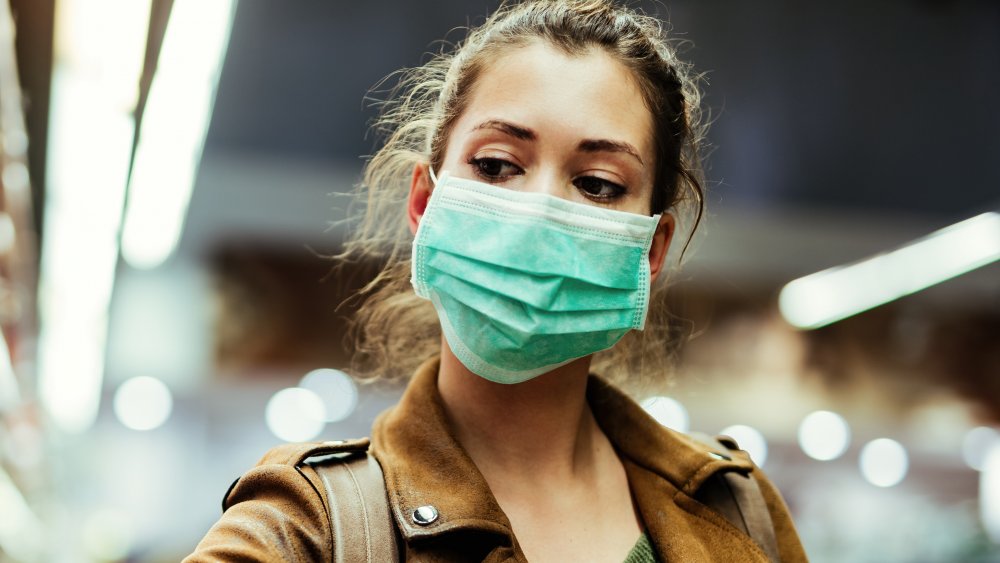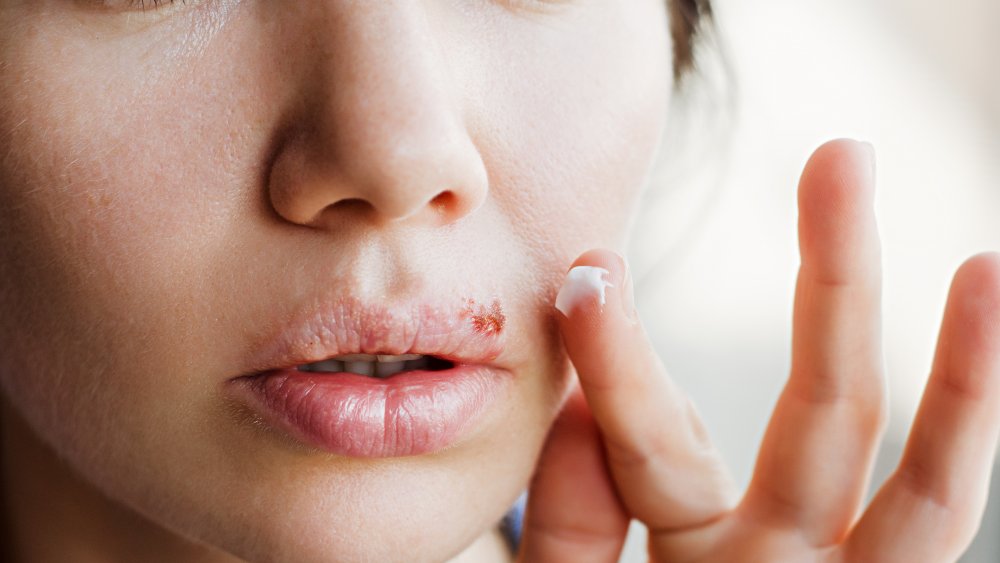Do Face Masks Really Cause Cold Sores?
You can find plenty of reasons to dislike the face masks that we need to wear during the ongoing pandemic. They can be hot and stuffy. They can also be the perfect breeding ground to give rise to a host of skincare problems from mask acne (now known as maskne), to rosacea, and contact allergy rashes. Some even say masks can cause cold sores (via Skin Shop). But is that really the case?
Cold sores, or fever blisters, are caused by the herpes simplex virus, which can trigger sores around the mouth, and on the genital regions. No one knows why a flare up happens, but triggers could include exposure to sunlight and excessive skin dryness. A cold sore usually heals on its own, but there are creams that can help make you feel better (via Yahoo). There are also things you can to keep the sores from making a comeback, like using lip balm and sunscreen. Also, avoid touching your sore, since you could spread it to other people (via Michigan Medicine).
There is a very strong link between stress and the appearance of a cold sore
There is one possible reason why the pandemic is causing triggering cold sore attacks, but that reason has nothing to do with wearing a mask. One particular study has established what it called a "robust relationship" between stress — which the pandemic has brought on in spades — and cold sores (via Europe PMC).
"Stress can weaken your immune system, which may be a trigger for cold sores to reemerge. If you suffer from cold sores and think they may be caused by stress, it's a good idea to manage your stress via mediation or other relaxation techniques," Donald Brown, primary care doctor at Houston Methodist says. He added, "If you've noticed that your flare-ups are linked to sunlight, be sure to apply sunscreen or sun-protective lip balm before going out in the sun."
Cue the face mask, which can both keep sunlight away, and keep you from touching your cold sore. A face mask can even hide a sore if you're not happy with the way it looks.

